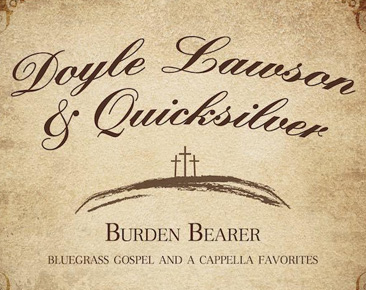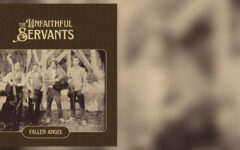
 Anthropologists believe that complex language skills are what has enabled humans to share information across generations, building a vast database of knowledge stored in the culture of different peoples. Countless studies of human behavior have shown that adding melody to words makes them easier to recall, and it seems that every human culture has used song to teach not only rising generations but all members important lessons about life.
Anthropologists believe that complex language skills are what has enabled humans to share information across generations, building a vast database of knowledge stored in the culture of different peoples. Countless studies of human behavior have shown that adding melody to words makes them easier to recall, and it seems that every human culture has used song to teach not only rising generations but all members important lessons about life.
Likewise, music has played a part in religious practice since the beginning of human history. Regardless of geography or ethnic background, the story of rituals associated with belief in a God figure throughout time have found evidence of music, and especially song, in the sharing of a culture’s belief.
In the Christian and Jewish faiths, which date so far back in the story of mankind, music and song are celebrated in Sacred Scripture, and proposed as an ideal way to express joy and satisfaction in having Truth revealed to us on Earth. As Christianity spread across Europe, Africa, and Asia in its earliest days, songs were often used to convey elements of the faith to a preliterate population, and even after printed materials became more common in the 15th century and beyond, songs of conviction and fidelity to Biblical truths have been commonplace.
This tradition continued into the Americas as European settlers arrived, and was similarly propagated by enslaved African people brought here against their will. Both groups had embraced Christianity, and the singing of what we now know as Gospel music was born of simple people using songs to teach the Scripture.
Gospel music is now an important form of commercial pop music, with record labels, booking agencies, artists, and songwriters dedicated to it exclusively, much like our bluegrass world. And the bluegrass and Gospel music communities have long been intertwined, with influences being traded across stylistic boundaries.
 Doyle Lawson & Quicksilver, who very nearly invented bluegrass Gospel as a separate musical entity, have dominated the field since the 1980s. While the very earliest days of bluegrass saw Gospel songs included in performances and recordings by Bill Monroe, Flatt & Scruggs, and The Stanley Brothers, it was Lawson who brought over elements from black and southern Gospel quartet singing that revolutionized how it was done.
Doyle Lawson & Quicksilver, who very nearly invented bluegrass Gospel as a separate musical entity, have dominated the field since the 1980s. While the very earliest days of bluegrass saw Gospel songs included in performances and recordings by Bill Monroe, Flatt & Scruggs, and The Stanley Brothers, it was Lawson who brought over elements from black and southern Gospel quartet singing that revolutionized how it was done.
Now, more than 35 years later, he has released what may be rightly seen as the definitive album in its genre. Burden Bearer contains 20 tracks of crisply played, technically perfect bluegrass Gospel harmony with as strong a vocal group as Lawson has ever assembled. Both ensemble playing and a cappella quartets are included, roughly half-and-half, on a mix of new and classic hymns and songs.
It’s not the songs themselves that set this record apart as much as the performances. Gospel music often features one or two main lines repeated throughout a song as opposed to thoughtful consideration of a question of faith. The point is to get those few lines to stick in your mind, as in Wrastlin’ Jacob, an old African American spiritual number that Doyle and the boys tear up on the record.
New songs are here as well, with two strong contributions from Tammy Jones Robinette (Burden Bearer and Best Friends), along with four from frequent Quicksilver songwriter Steve Watts (Another Day, No Storms That We Must Fear, Passed All Sorrow, and By The Marks In His Hands). These come across just fine next to classics from Alfred Brumley (The Touch Of His Gentle Hand), Luther Presley (Sailing On The Waves Of Glory), (A.P. Carter (God Gave Noah The Rainbow Sign), and Arthur Smith (He’s Everywhere).
But again, the songs aren’t the reason to pick up this project. It’s worth having just to allow for repeated listening to these vocal performances. Lawson has had some of the finest singers in bluegrass working for him over the years, many of whom have gone on to success on their own. It’s pointless to argue who among them might have been the best, but surely none of the quartets he’s put forward have anything on this current bunch.
Tenor singer Dustin Pyrtle blares like a trumpet on these tracks, blending perfectly with Lawson, Eli Johnson, and Josh Swift on bass. If you love precise vocal harmony, you’ll find it here. One minute they soar like a brass quintet, the next bop along like a steam calliope. Doyle Lawson’s long reputation as an arranger of Gospel harmony is well deserved, and is enhanced further by his versions of Brothers Have You Heard and Get Right With God.
Of particular note is the fact that of all these 20 songs, none feature the sort of flashy endings or showy modulations that have often typified this style. They are generally presented simply. The fascination comes from the spot-on execution.
All the tracks are delightful, though the a cappella numbers strike me as especially satisfying. Even the heart hardened against appeals to faith will be unable to resist the charm of Burden Bearer.
The album is released to wide circulation this Friday, July 8 and will be available from popular resellers of CDs and downloads.
Doyle will appear this evening (July 6) on WBRF’s Blue Ridge Backroads show for a track-by-track look at Burden Bearer. He and host Judith Burnette will go through the project at 8:00 p.m. (EDT). The station broadcasts at 98.1 FM in Galax, VA and via online streaming for their web site.







